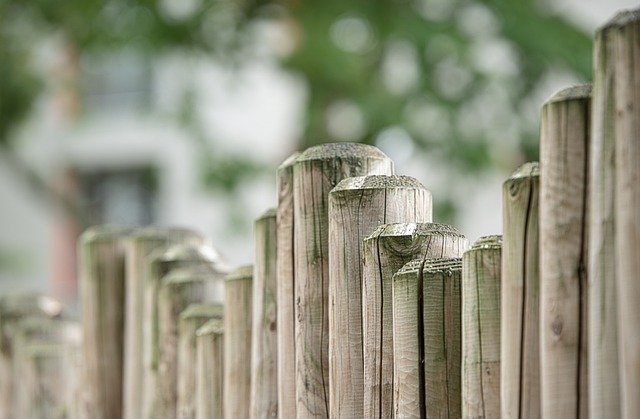Vinyl Fence Installation: A Comprehensive Guide for New Bedford Residents
Are you considering enhancing your New Bedford property with a stylish and durable fence? This guide delves into the world of vinyl fencing, offering an extensive overview of installation processes, design options, and essential tips. From understanding local regulations to choosing the perfect contractor, we cover all aspects of bringing your ideal fence to life. Whether you’re aiming for a contemporary look or classic charm, this article ensures you make informed decisions, resulting in a long-lasting and aesthetically pleasing addition to your outdoor space.
- Understanding Vinyl Fence Options for Your Property
- The Installation Process: Step-by-Step Guide
- Choosing the Right Contractor in New Bedford
- Benefits of Vinyl Fences: Durability and Low Maintenance
- Permits and Regulations: What You Need to Know
- Post-Installation Care and Maintenance Tips
Understanding Vinyl Fence Options for Your Property
When considering a vinyl fence installation, New Bedford residents have various options to choose from based on their property’s unique needs and personal preferences. These fences come in different styles, colors, and designs, each offering distinct advantages. The most common types include privacy fences, perfect for creating a secluded outdoor space, and picket fences, which provide both aesthetic appeal and a touch of traditional charm. For those seeking durability and low maintenance, vinyl’s weatherproof nature makes it an excellent choice.
Additionally, these fences can be customized to fit any size or shape of yard. From straight lines to curved designs, vinyl’s flexibility allows for creative freedom in landscaping. The range of colors available ensures that homeowners can find the perfect match for their exterior design while also considering factors like UV resistance and fade protection.
The Installation Process: Step-by-Step Guide
When it comes to vinyl fence installation, New Bedford contractors typically follow a systematic process to ensure a sturdy and aesthetically pleasing barrier. The initial step involves preparing the ground, marking out the perimeter of the fence, and installing posts at evenly spaced intervals. These posts serve as the foundation, providing stability and support for the entire structure.
Once the posts are secure, the contractors begin attaching panels or pickets to the posts. This can be done using various methods, such as nailing or screwing, depending on the type of fence and personal preference. The final touches include installing gates and locks if required, along with any additional accessories like caps or post lights. Each step is crucial in ensuring a well-built, durable vinyl fence that will enhance any property for years to come.
Choosing the Right Contractor in New Bedford
When choosing a vinyl fence installation contractor in New Bedford, it’s crucial to select a company with proven experience and a strong reputation. Look for professionals who specialize in vinyl fencing and can provide references from previous clients. Check online reviews and ratings to gauge their customer satisfaction levels. Reputable contractors should offer free estimates, ensure they use high-quality materials, and guarantee their work.
Consider the contractor’s ability to handle your specific needs. Do they customize designs? Can they accommodate complex installations or unique shapes? Effective communication is also key; choose a company that listens to your vision, provides clear project timelines, and maintains open lines of communication throughout the installation process.
Benefits of Vinyl Fences: Durability and Low Maintenance
Vinyl fences offer numerous benefits, especially for homeowners in New Bedford, MA, looking to enhance their outdoor spaces. One of the most significant advantages is their durability. Made from high-quality materials, vinyl fences can withstand extreme weather conditions, including harsh winters and hot summers, without showing signs of wear and tear. They are resistant to rot, rust, and decay, ensuring they remain strong and structurally sound for years.
Moreover, low maintenance is a significant draw for many homeowners. Unlike wooden fences that require frequent painting, sealing, and repairs, vinyl fences demand minimal upkeep. A simple wash with soap and water every few months is usually sufficient to keep them looking new. This convenience saves time and money in the long run, making vinyl fences an attractive option for those seeking a low-maintenance outdoor solution.
Permits and Regulations: What You Need to Know
When planning a vinyl fence installation, understanding permits and regulations is crucial before starting any work. In New Bedford, MA, homeowners or contractors must obtain necessary permits from the local building department to ensure compliance with city codes. These permits are typically required for structural changes and new installations, ensuring safety and quality standards are met. Failure to secure the right permissions can result in fines and delays, so it’s a vital step in the process.
Local regulations may vary, dictating specific fence types, heights, and locations allowed. Some areas have restrictions on certain materials or designs, while others require setbacks from property lines. It’s essential to review these rules carefully, as they can impact both the aesthetic and structural aspects of your vinyl fence. Staying informed about permits and adhering to regulations guarantees a smooth installation process and a fence that fully complies with local guidelines.
Post-Installation Care and Maintenance Tips
After your vinyl fence is installed, proper care and maintenance will ensure its longevity and maintain its attractive appearance. Regular cleaning with a soft brush or garden hose removes dirt, dust, and debris accumulated over time. Avoid using harsh chemicals or power washers, as they can damage the vinyl material. A mild detergent or soapy water solution is suitable for spot cleaning any stains or marks.
Inspect your fence periodically for any signs of wear, such as loose panels, damaged posts, or broken hardware. Address these issues promptly to prevent further deterioration. Minor repairs, like tightening screws or replacing small sections, can be done by the homeowner. For more extensive damage or complex repairs, contact your contractor for professional assistance. Regular maintenance will keep your vinyl fence looking new and enhance its structural integrity over the years.
